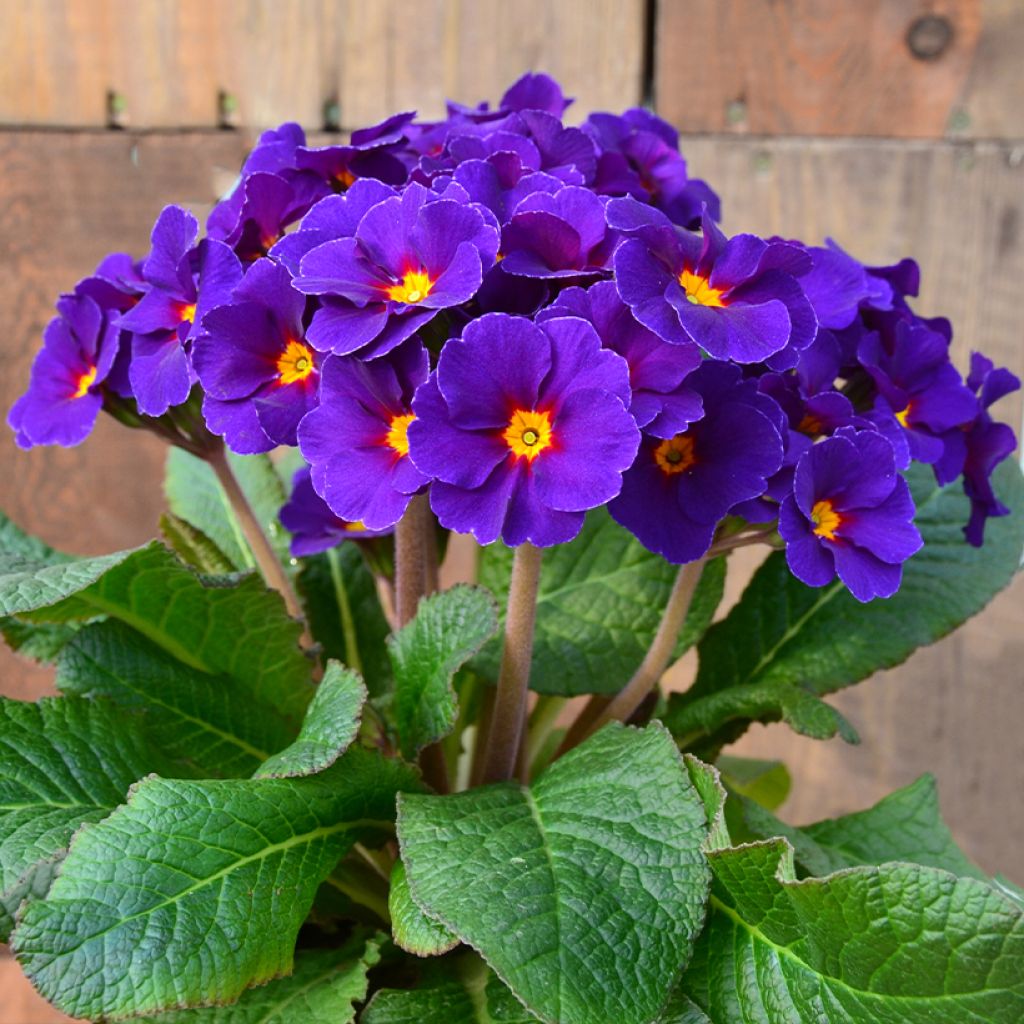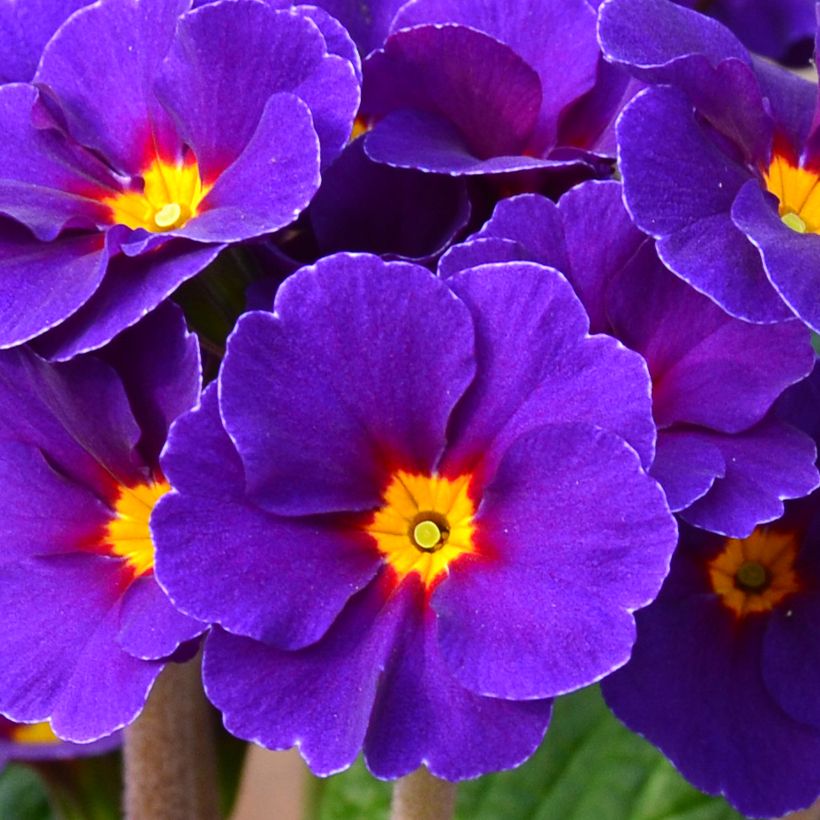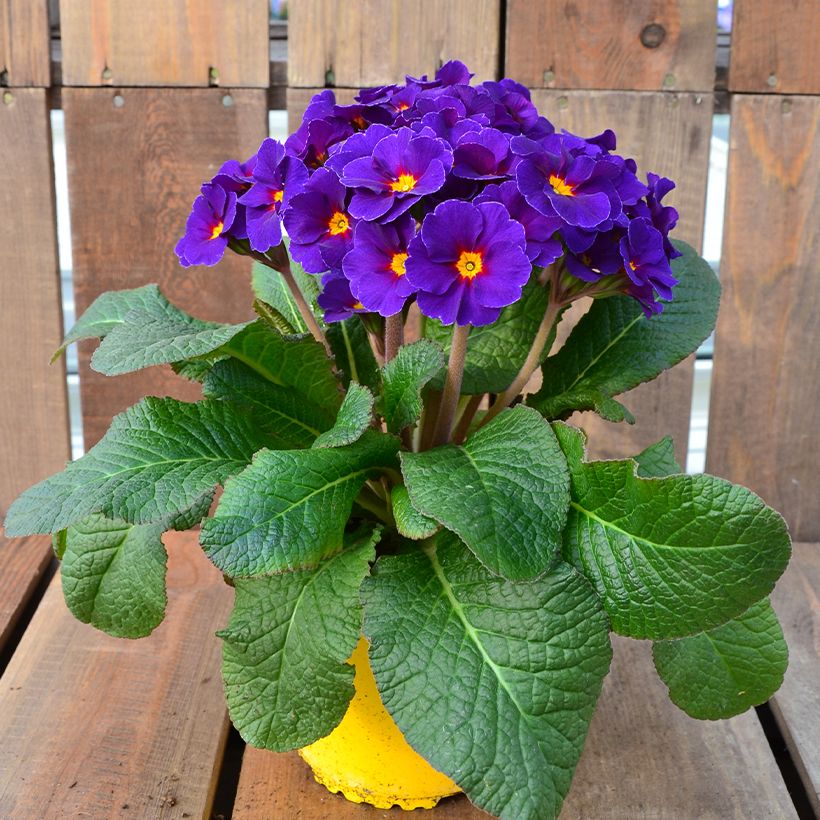

Primevère - Primula elatior Veristar Late Blue
Primula elatior Veristar Late Blue - Oxlip
Primula x elatior Veristar Late Blue
Oxlip
Very good recovery. The plug plants have thrived in buckets under shelter for a few weeks and are now planted to spend the winter in the field of plants.
Elisabeth, 19/11/2022
Special offer!
Receive a €20 voucher for any order over €90 (excluding delivery costs, credit notes, and plastic-free options)!
1- Add your favorite plants to your cart.
2- Once you have reached €90, confirm your order (you can even choose the delivery date!).
3- As soon as your order is shipped, you will receive an email containing your voucher code, valid for 3 months (90 days).
Your voucher is unique and can only be used once, for any order with a minimum value of €20, excluding delivery costs.
Can be combined with other current offers, non-divisible and non-refundable.
This plant carries a 6 months recovery warranty
More information
We guarantee the quality of our plants for a full growing cycle, and will replace at our expense any plant that fails to recover under normal climatic and planting conditions.

Would this plant suit my garden?
Set up your Plantfit profile →
Description
The Primula 'Veristar Late Blue F1' is a hardy primrose that will be appreciated for its performance in the garden and its spring flowering, which is as generous as it is richly coloured. The compact and bushy plant produces numerous flower stems, each carrying very pretty blue-violet flowers enhanced by a golden heart surrounded by magenta. Very beautiful in borders, it is also an ideal biennial-to-perennial plant for ornamental containers. You will plant it in a sunny but not scorching position, in soil enriched with compost, fertile and moist.
The primroses belong to the primrose family. The Primula elatior, also known as the oxlip or woodland primrose, is a herbaceous perennial plant that belongs to our native flora and is mostly found in the dappled shade of clearings or at the edge of forests. When it is abundant, this species, sometimes called the cuckoo flower, is an indicator of ancient forests, relatively undisturbed by human activity. This plant has produced many short-lived perennial hybrids through hybridization with the common primrose (Primula vulgaris), often cultivated as biennial plants. This 'Veristar Late Blue' primrose blooms from late January if protected from the cold, but more commonly in March, depending on the climate, for about 4-5 weeks. On each plant, several flower stems 20-25 cm (8-10in) tall each carry several single flowers 3 cm (1in) in diameter, composed of rounded petals. Their colour is well highlighted by evergreen foliage in rosettes of large, deeply crinkled dark green leaves, which are ornamental even outside the flowering season.
Elatior primroses are less well-known than stemless primroses, but they have many advantages: they are taller, hardier, more perennial, and their flowering is also more spectacular. They are excellent companions for shade and cool woodland perennials such as heucheras, brunnera, forget-me-nots, violets, or even hostas. They can also be used to decorate the terrace, window, or balcony when planted in containers that will brighten up spring scenes. They also look great in a simple bouquet, mixed with forget-me-nots or early tulips.
Report an error about the product description
Primula elatior Veristar Late Blue - Oxlip in pictures




Flowering
Foliage
Plant habit
Botanical data
Primula
x elatior
Veristar Late Blue
Primulaceae
Oxlip
Cultivar or hybrid
Planting and care
The 'Veristar Late Blue' primroses are planted in pots and flower boxes or directly in the ground in a finely prepared soil enriched with compost, not too chalky. Plant them if possible upon receipt, in September-October or in March-April. If the planned location is not yet ready or if the conditions are unfavourable for planting, you can let them grow as plug plants for 4 to 6 weeks. Choose a sunny exposure, but not scorching.
In pots and flower boxes, use a good potting soil for flowering plants (geranium-type potting soil) enriched with clay and slow-release fertiliser, light and well-draining. The top of the plug should be level with the potting soil. Water generously at planting and during the following weeks, as the plug plants can dry out quickly. However, be careful not to overwater! Make sure to use containers with drainage holes and empty the saucer 10 minutes after watering. Remember to water even during winter if it doesn't rain or if the container is placed in a sheltered location. Do not water during freezing periods.
Very floriferous and fast-growing, primroses are hungry plants. As soon as growth resumes, end of February/beginning of March, and throughout the flowering period, apply a liquid fertiliser for flowering plants containing iron and trace elements 1 to 2 times a week in the watering can. Remove faded flowers to promote new blooming. Once the flowering is faded, potted plants can be replanted in the garden in partial shade.
Planting period
Intended location
Care
-
, onOrder confirmed
Reply from on Promesse de fleurs
Haven't found what you were looking for?
Hardiness is the lowest winter temperature a plant can endure without suffering serious damage or even dying. However, hardiness is affected by location (a sheltered area, such as a patio), protection (winter cover) and soil type (hardiness is improved by well-drained soil).

Photo Sharing Terms & Conditions
In order to encourage gardeners to interact and share their experiences, Promesse de fleurs offers various media enabling content to be uploaded onto its Site - in particular via the ‘Photo sharing’ module.
The User agrees to refrain from:
- Posting any content that is illegal, prejudicial, insulting, racist, inciteful to hatred, revisionist, contrary to public decency, that infringes on privacy or on the privacy rights of third parties, in particular the publicity rights of persons and goods, intellectual property rights, or the right to privacy.
- Submitting content on behalf of a third party;
- Impersonate the identity of a third party and/or publish any personal information about a third party;
In general, the User undertakes to refrain from any unethical behaviour.
All Content (in particular text, comments, files, images, photos, videos, creative works, etc.), which may be subject to property or intellectual property rights, image or other private rights, shall remain the property of the User, subject to the limited rights granted by the terms of the licence granted by Promesse de fleurs as stated below. Users are at liberty to publish or not to publish such Content on the Site, notably via the ‘Photo Sharing’ facility, and accept that this Content shall be made public and freely accessible, notably on the Internet.
Users further acknowledge, undertake to have ,and guarantee that they hold all necessary rights and permissions to publish such material on the Site, in particular with regard to the legislation in force pertaining to any privacy, property, intellectual property, image, or contractual rights, or rights of any other nature. By publishing such Content on the Site, Users acknowledge accepting full liability as publishers of the Content within the meaning of the law, and grant Promesse de fleurs, free of charge, an inclusive, worldwide licence for the said Content for the entire duration of its publication, including all reproduction, representation, up/downloading, displaying, performing, transmission, and storage rights.
Users also grant permission for their name to be linked to the Content and accept that this link may not always be made available.
By engaging in posting material, Users consent to their Content becoming automatically accessible on the Internet, in particular on other sites and/or blogs and/or web pages of the Promesse de fleurs site, including in particular social pages and the Promesse de fleurs catalogue.
Users may secure the removal of entrusted content free of charge by issuing a simple request via our contact form.
The flowering period indicated on our website applies to countries and regions located in USDA zone 8 (France, the United Kingdom, Ireland, the Netherlands, etc.)
It will vary according to where you live:
- In zones 9 to 10 (Italy, Spain, Greece, etc.), flowering will occur about 2 to 4 weeks earlier.
- In zones 6 to 7 (Germany, Poland, Slovenia, and lower mountainous regions), flowering will be delayed by 2 to 3 weeks.
- In zone 5 (Central Europe, Scandinavia), blooming will be delayed by 3 to 5 weeks.
In temperate climates, pruning of spring-flowering shrubs (forsythia, spireas, etc.) should be done just after flowering.
Pruning of summer-flowering shrubs (Indian Lilac, Perovskia, etc.) can be done in winter or spring.
In cold regions as well as with frost-sensitive plants, avoid pruning too early when severe frosts may still occur.
The planting period indicated on our website applies to countries and regions located in USDA zone 8 (France, United Kingdom, Ireland, Netherlands).
It will vary according to where you live:
- In Mediterranean zones (Marseille, Madrid, Milan, etc.), autumn and winter are the best planting periods.
- In continental zones (Strasbourg, Munich, Vienna, etc.), delay planting by 2 to 3 weeks in spring and bring it forward by 2 to 4 weeks in autumn.
- In mountainous regions (the Alps, Pyrenees, Carpathians, etc.), it is best to plant in late spring (May-June) or late summer (August-September).
The harvesting period indicated on our website applies to countries and regions in USDA zone 8 (France, England, Ireland, the Netherlands).
In colder areas (Scandinavia, Poland, Austria...) fruit and vegetable harvests are likely to be delayed by 3-4 weeks.
In warmer areas (Italy, Spain, Greece, etc.), harvesting will probably take place earlier, depending on weather conditions.
The sowing periods indicated on our website apply to countries and regions within USDA Zone 8 (France, UK, Ireland, Netherlands).
In colder areas (Scandinavia, Poland, Austria...), delay any outdoor sowing by 3-4 weeks, or sow under glass.
In warmer climes (Italy, Spain, Greece, etc.), bring outdoor sowing forward by a few weeks.































